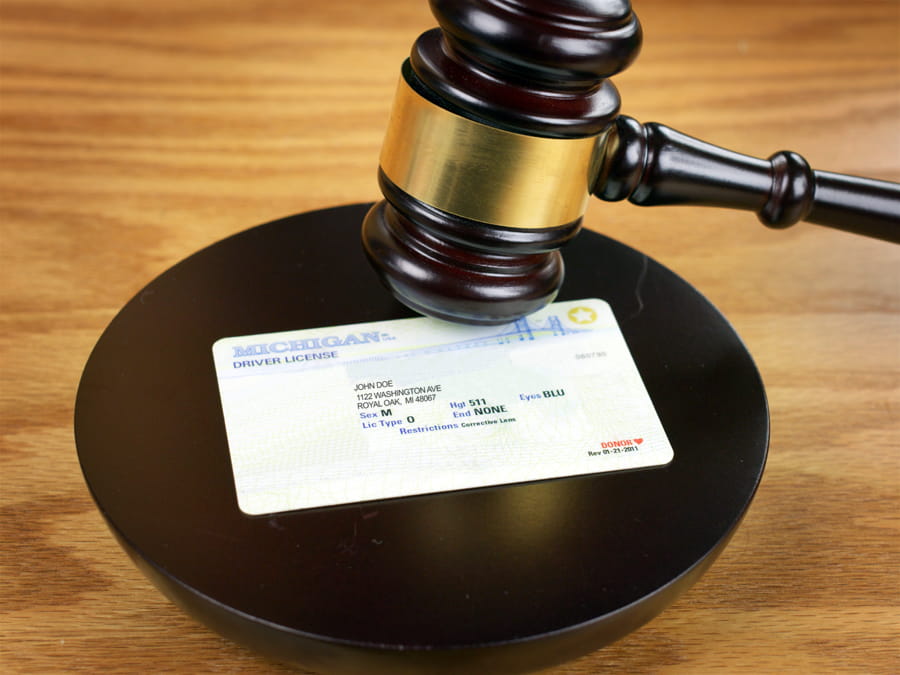
Not being able to legally drive is a very serious setback for anyone looking to have a normal life in today’s world. This is especially true in Michigan, which as the home of the auto industry, is heavily vehicle centric with limited transportation alternatives. For those looking to make positive changes to their lives, hold a job, have a social life and be able to do essential activities like shopping, entertainment, etc, losing a drivers license effectively creates an insurmountable barrier to forward progress.
Recognizing the desperate situation this puts individuals in, Michigan offers what is known as a hardship or restricted drivers license. This is issued under special circumstances after someone loses their license due to a DUI, excessive points on their driving record, serious moving violations, etc. The process for this is difficult, with many steps that must be completed properly in order to have a good chance of successfully receiving one of these licenses.
In order to maximize the chances of success, it is strongly recommended that individuals work with an DUI attorney specializing in license restoration and hardship licenses. These lawyers understand the intricacies of the process and can present your case in the best light possible before a court. Because this process is long and challenging, it is ill advised to do it alone.

As mentioned earlier, the process for receiving a hardship license is long and challenging. There are multiple steps involved in the process, beginning with having a clear justification for being granted the license due to the strain not being able to drive places on an individual or their family. This justification must be clearly demonstrable in order to be able to present your case to the courts.
The most common reason for a license suspension is due to an implied consent violation. This is when an individual was pulled over by a police officer on suspicion of drunk driving and refuses to submit to a breathalyzer test. Normally, this results in six points on a driving record as well as a six month license suspension. If this is the case, the process begins by requesting a hardship license from the circuit court in which the arrest and implied consent violation occurred.
There is a significant amount of red tape involved in the process, including mountains of paperwork, various mandatory fees and strict timelines that must be followed. Covered under MCL 257.323, this process is no piece of cake. The Michigan Secretary of State (SOS) lays out the process on their page surrounding drivers license restoration, and details the various avenues through which this process can be undertaken.
While it is possible for those with a suspended license to go directly to a circuit court, it is strongly advised that those who have lost their license due to an implied consent violation file for an implied consent hearing first. If this is filed within fourteen days of an arrest, then the case can be taken to the Michigan Assessment and Appeal Division (DAAD) where the license suspension can be contested and appealed for reversal. This is normally only for first time offenders and isn’t intended to be taken multiple times, such as in the case of repeat offenders.
In the event that the appeal hearing was not requested within the appropriate time window or the outcome was not favorable, the only remaining course of action is to go through the official hearing process at the appropriate circuit court. For all practical purposes, a legal advocate is required for this, since it involves the circuit court. In addition to providing testimony, there are specific documents that must be brought into court, including:
During this process, the attorney’s primary job besides assisting with paperwork and navigating the rules is to put together a convincing case to be brought before the court that highlights how a lack of a license is creating a serious hardship for the individual and/or their family. This can include things such as missing school, being unable to work, not being able fulfil childcare duties and more.
Regardless of whether an individual is seeking to take their case to DAAD or has already been denied a hardship license and is appealing through the circuit court, having a reputable legal team on their side is critical to ensuring the best possible outcome for their case. This is not something that an individual should attempt to do on their own.
A skilled attorney with expertise in drunk driving and license restoration can mean the difference between life altering restrictions on transportation freedom and being able to function once again as a normal member of society. If you find yourself in this situation and are in need of legal assistance, please contact our office today to learn how we can best assist you.